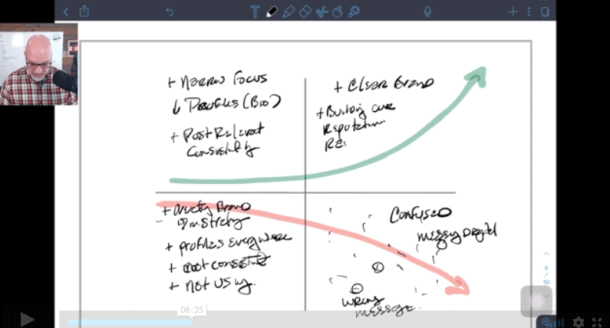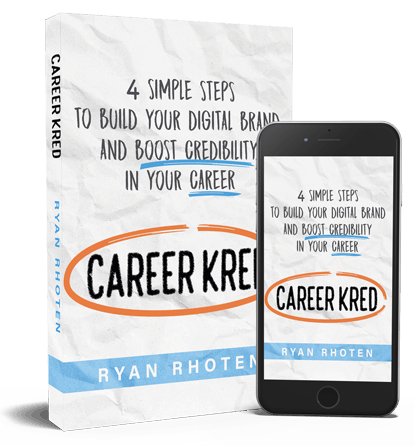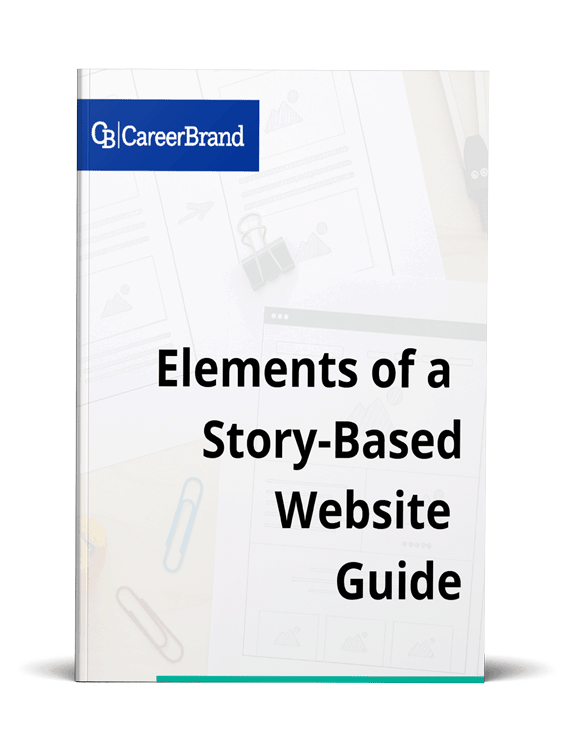
The Reputation Economy (affiliate link) is the name of the book I’m currently reading, well one of them anyway. The premise of the book is that at some point in the not so distant future your online reputation will drive your social and economic standing.
According to the author Michael Fertik, we are already in the infancy of what he refers to as the reputation economy. What this means is how you are viewed and what people are willing to do for you in the future will be determined by your online reputation.
A good online reputation will translate into more opportunities for advancement, both personally and professionally.
A bad or non-existent online reputation could mean business as usual for you. You’ve climbed as high as you’re going to go.
Think about this for a minute.
Every day we leave behind a digital footprint whether we think about it or not. Did you buy something today? Do you do your banking or manage your budget with an online application? Did you post anything on a social media site?
Admit it. You know you posted to Facebook earlier.
How about Twitter, Instagram, comments on a blog post or forum? Do you have a college degree? Bachelor's or masters? Ph.D.?
All of these “things” leave behind a digital footprint. With each “digital step” you take, you leave behind just enough information for an algorithm to compile a very compelling and, perhaps a little frightening, picture of who you are, your habits and what you spend your money on.
You even leave behind enough of a footprint for algorithms to take a shot at deducing your personality.
CRYSTAL KNOWS
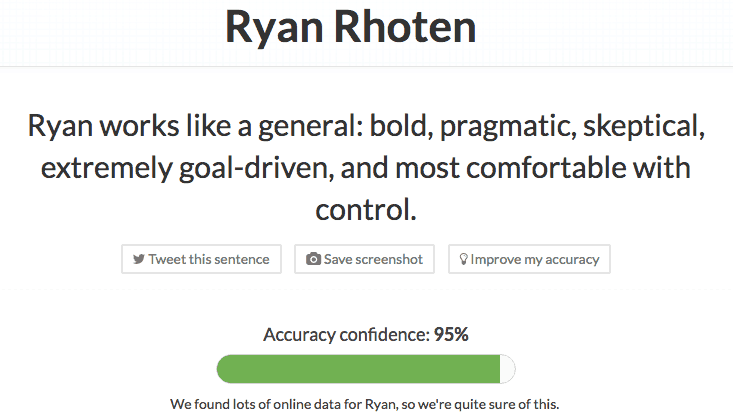
If you listen to my podcast, you may remember an interview I did with Drew D’Agostino, the founder of Crystal.
For those who don’t know, Crystal is a software program designed to piece together a personality profile for you based on what it curates from your digital footprint.
Drew told me Crystal was designed to help people better communicate with others by offering suggestions on how you should interact with someone via email. The suggestions are generated by Crystal’s algorithm which creates a personality profile for you.
While Drew is strictly focused on using Crystal for email communications, I can see more than a few applications for Crystal in the reputation economy.
I can see it becoming mainstream on LinkedIn where every recruiter or potential employer can download and review Crystal’s personality profile of you.
This is the case now if you are a paying Crystal customer and have the Chrome extension in place; the Crystal button shows up on LinkedIn and Twitter today. Anyone with the software can generate a personality profile on anyone else.
Each Crystal profiles comes with a percentage of accuracy rating but the larger your digital footprint the higher your percentage.
KLOUT AND KRED
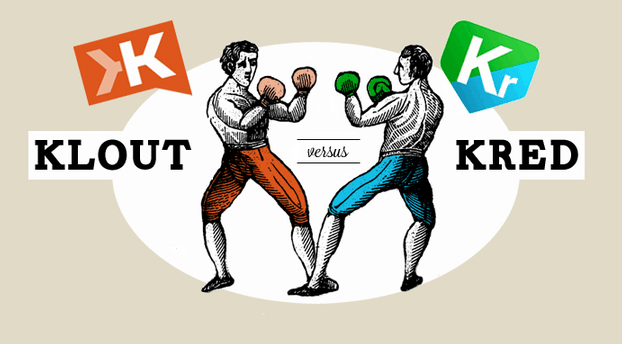
INFOGRAPHIC USED FOR PICTURES CAN BE FOUND AT http://blog.kred/2015/07/infographic-klout-vs-kred/
As cool as Crystal is, it’s really a new kid on the block when it comes to using big data to measure your online reputation. Kred and Klout are both reputation measurement systems and have been around for what the internet would consider light years.
Initially, many considered them novelty items and maybe they were at first. I believe both just are now hitting their stride and will only increase in importance as the ability of developers to gain access to the huge treasure troves of information about you that currently resides online.
Klout (note: Klout closed operations in 2018), launched in 2008, is a software application that uses social media analytics to rank its users for online social influence.
It curates information about you from social media sites such as Facebook, Foursquare, Google+, Instagram, LinkedIn, and Twitter (there are others) to create a profile of you.
The algorithm then assigns you a “Klout Score” between 1 and 100. The theory here is the higher your score, the higher your online influence.
Klout does not disclose how its algorithm works or what components it measures. Only the engineers at Klout know how Klout works.
Klout uses its score to entice companies to participate in its “Perk” program. The program allows companies to provide perks to Klout users with a high score for free.
Obviously, the company providing the perk is hoping the recipient will write or talk about receiving their perk within their sphere of influence. And they work.
I know one individual with a high Klout score who, after tweeting he was looking for a new printer promptly received one via the program. Guess what he tweeted about next?
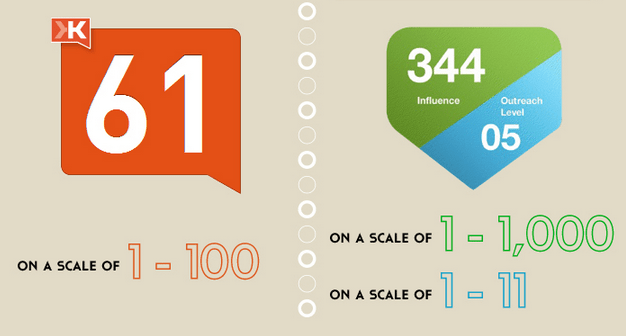
INFOGRAPHIC USED FOR PICTURES CAN BE FOUND AT http://blog.kred/2015/07/infographic-klout-vs-kred/
Along the same lines, Kred is also a software application designed to measure social influence. Unlike Klout however, it’s algorithm is openly-published. You know what goes into your score.
Kred uses a dual scoring system. Kred measures your influence online, the likelihood someone else will trust you and act on your suggestions. But Kred does not stop there.
Additionally, Kred has a measurement for what it calls Outreach. Outreach in the Kred world is defined as your willingness to share other peoples content.
To me, Kred seems to be the more robust of the two social metrics because of the dual measurement system. After all, becoming known as the expert in your niche requires you to curate content as well as create it.
Kred also has a program for companies called Rewards. This allows companies to provide high Kred score users with discounts and or product samples.
In both cases, Klout or Kred, you have the opportunity to be recognized and rewarded for your online reputation.
WHERE IS THIS GOING?
I imagine as you’re reading this you’re thinking to yourself, who cares? Answer. You should. Let’s look at this example.
Imagine the next time you applied for a job instead of being asked for a resume or cover letter you were asked for your employee score.
Before you scoff at this notion indulge me for me a minute (or three). What if everything you’ve done throughout your career could be boiled down into a numeric score.
Like achievement points in an Xbox game, job descriptions become a checklist of desirables with points assigned for each.
Got a bachelors degree? 100 points. Bachelors degree from Harvard, well that’s worth 500 points. Certifications, 100 points each. Worked at company X, 500 points. And so on the list goes; so, I’m sure you get the point (pun intended).
I know you’re chuckling to yourself, but remember all of this information I just mentioned, can be gathered online.
Your degrees, your certifications, where you worked, every one of them can be pulled from your LinkedIn profile. Oh, wait. Don't you have a LinkedIn account?
Now let’s aggregate your job description points and include your Klout and Kred scores as well as your Crystal personality profile and put them into an employee score algorithm.
Starting to see where this is going?
The algorithm blends up these inputs and pours out your employee score. This fictitious employee score can now be used to rack, stack and rank you against other candidates.
Oops. Sorry, you missed reaching the interview level for that position by 5 points.
Your employee score just cost you an opportunity and a potential bump in compensation which could eventually impact your social and economic status.
SUMMARY
It’s true, this example is an exaggeration and we may never reach the point of an employee score, but I wouldn’t rule it out completely.
The technology exists today to make a metric like this possible. I offer this extreme scenario to emphasize this point:
“You must pay attention to what you post online because you never know how it will be used either for or against you in the future.”
I’m a realist and I understand many of you who read this will quickly dismiss it as science fiction. But what if it isn’t?
Instead of dismissing this idea, what if you embrace it? Instead of criticizing, you begin to take the necessary steps to grow your online influence, reputation, and authority in your area of expertise.
And you do it now before you need to.
If you’ll just start, you’ll find yourself ready when the Reputation Economy is in full swing, and who knows it may even help you improve your overall position in life, both professionally and personally.
INFOGRAPHIC USED FOR PICTURES CAN BE FOUND AT http://blog.kred/2015/07/infographic-klout-vs-kred/
It was originally posted by http://www.socialmediadelivered.com/2012/04/18/infographic-klout-vs-kred/
